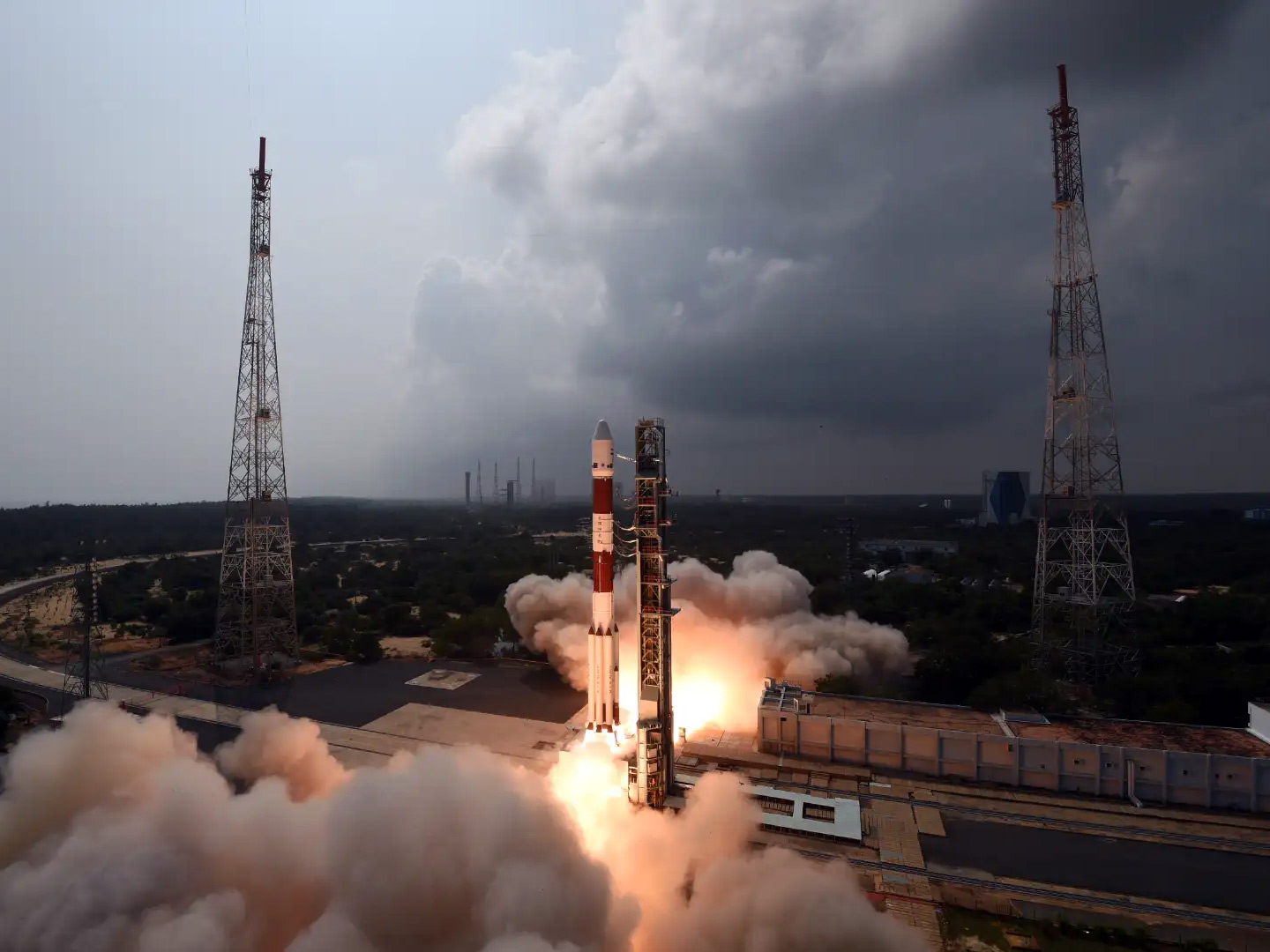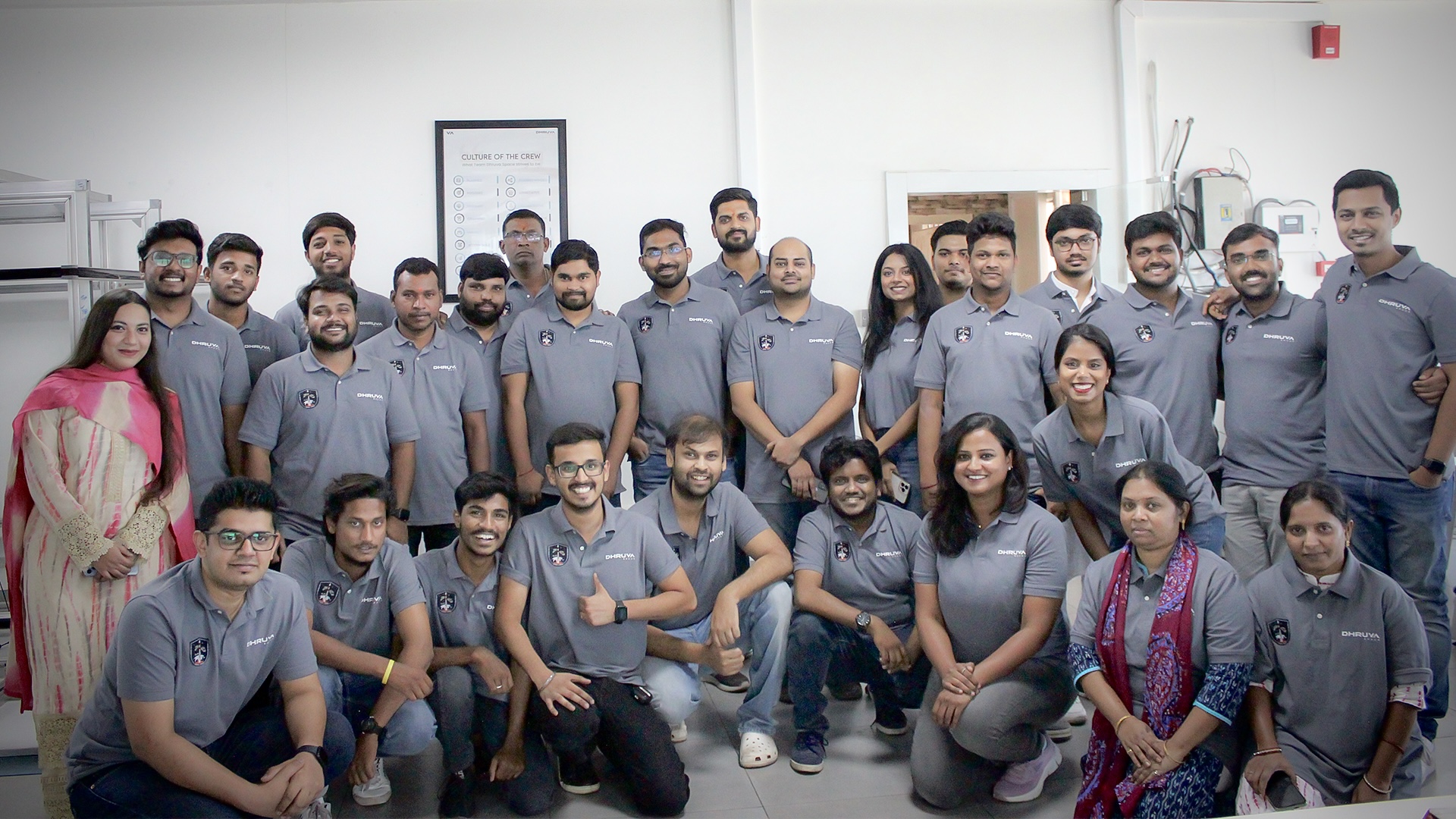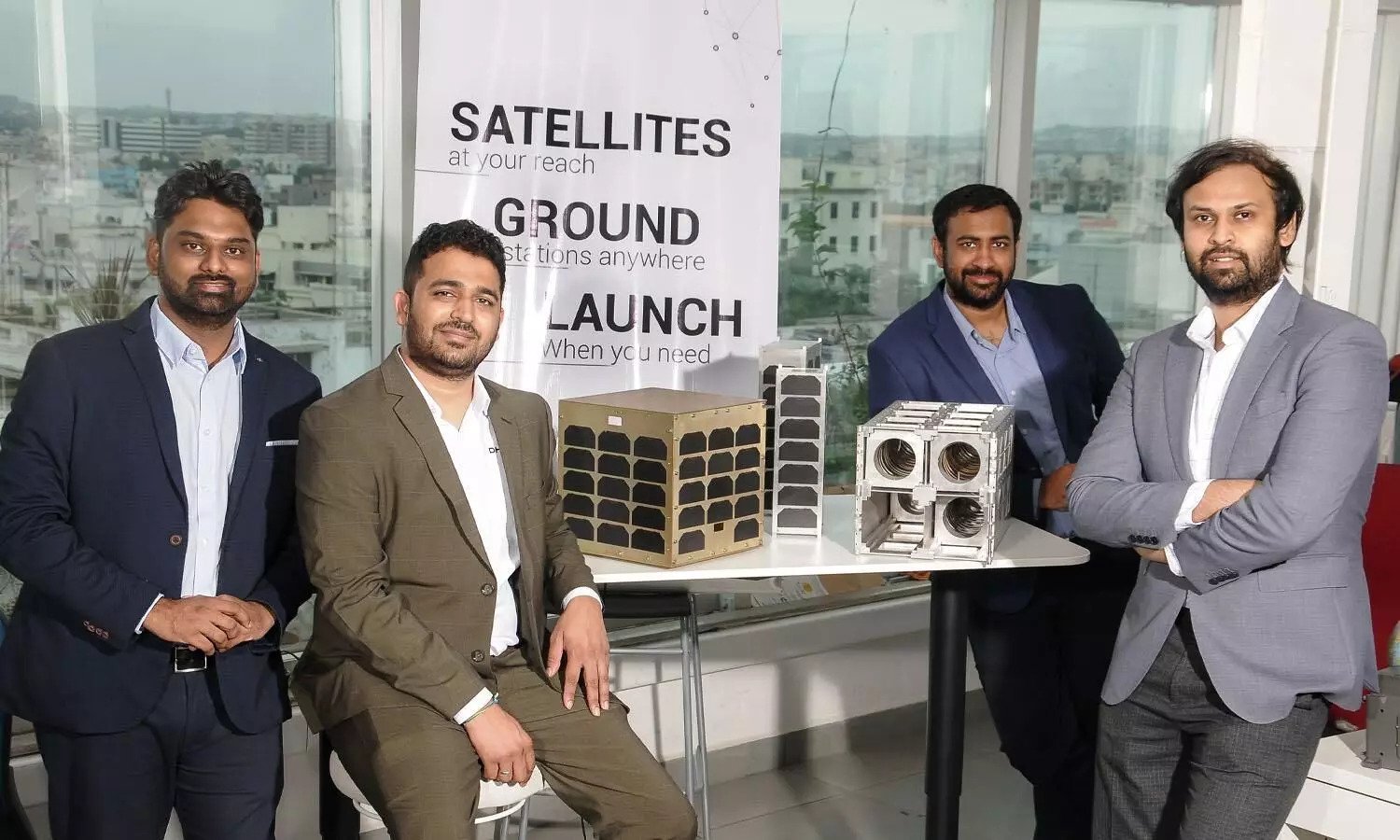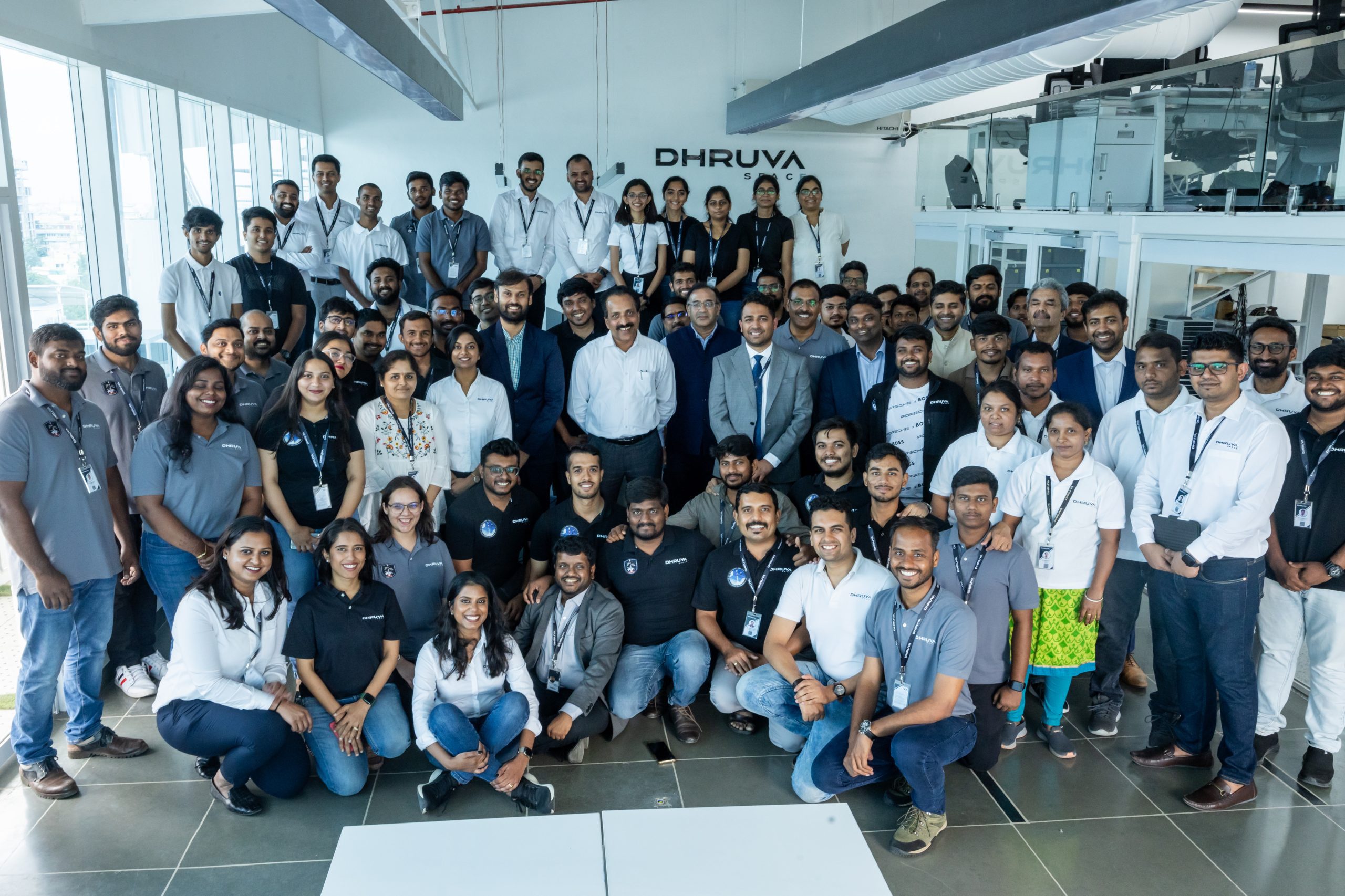(August 8, 2023) Sanjay Nekkanti built his first satellite when he was 19-years-old and knew then that it was what he wanted to do. In 2012, he co-founded Dhruva Space, which, ten years on, remains a forerunner in end-to-end space technology solutions, for customers who want to launch and own space assets. In 2022, the company made history as the first privately-owned Indian company in the country to build a satellite by itself. Its two nanosatellites, Thybolt-1 and Thybolt-2, were launched by ISRO.
Today, the Indian space-tech industry is booming; valued at around US $8 billion in 2023, it is projected to be worth over ten times that by 2040. Dhruva Space is one of the handful of space-tech startups on the scene today, even rarer still, one of the few companies worldwide who provide end-to-end solutions, from space system engineering and satellite launches to ground support, serving both civilian and defense customers globally.
In May 2023, Hyderabad’s Dhruva Space successfully conducted its third space mission in less than a year, launching two types of Satellite Orbital Deployers and a Radio Frequency module aboard ISRO’s PSLV-C55. The mission, which included testing the DSOD-3U and DSOD-6U units for larger CubeSats and delayed satellite deployment, marked a significant step towards Dhruva Space’s goal to have payloads on every ISRO-PSLV mission.

Sanjay Nekkanti is a co-founder of Dhruva Space
“Typically having a space mission in orbit entails working with multiple suppliers. This has a huge impact on cost, reliability and turnaround times. A little context: the timing of the vitalisation of India’s Private Space Sector has been integral, considering there are many small satellite requirements globally. The projections are estimated to be in the tens of thousands in number; so, in order to meet any of those demands, the global supply chain needs to be robust and strong,” says Dhruva Aerospace CEO Sanjay Nekkanti, in conversation with Global Indian.
Dhruva Space works actively in the ecosystem with 400-odd companies that have been building small yet important components for the Indian Space Programme for many decades now. By working with these vendors, Dhruva Space delivers missions faster and economically without impacting reliability. This is the need of the hour in the age where customers are not looking at sending just one or two satellites to Space but rather considering sending dozens of satellites to Space, to improve satellites-enabled services.

Dhruva Space’s 3U and 6U Satellite Orbital Deployers and Orbital Link onboard ISRO’s PSLV-C55
Starting out amid challenges
In 2012, during the early days of Dhruva Space, the Indian market was not very receptive to space entrepreneurs, who had very little access to capital. The private space sector was seen as a high-risk domain with little to no guarantee of a reward. However, Nekkanti himself had been part of fledgling efforts, as part of the SRM University Team that built SRMSAT, a student-made satellite which was launched in 2011 on board the PSLV-C18. He went on to pursue a dual-degree Master’s programme in Space Engineering in Europe, and was already incubating his desire to turn India into a satellite capital of the world. To this end, he founded Dhruva Space in 2012. Six years later, he was joined by long-time friends, Chaitanya Dora Surapureddy, Abhay Egoor and Krishna Teja Penamakuru, as co-founders. Also in 2012, the market was segmented only into academia – which was academic institutions building small satellites – and Government which is Indian Space Research Organisation (ISRO).

Dhruva Space team at the launch of their Orbital Link and Satellite Orbital Deployers aboard ISRO’s PSLV-C55
Nekkanti recalls, “Access to capital in 2012 was very difficult, but as the dialogue around satellite and space technologies have evolved over the years, Dhruva Space has raised USD 9 million to date; and we are supported by institutional and angel funds.”
Milestones and lessons
Since June 2022, Dhruva Space has completed three Space missions – in its endeavours to make Space accessible frequently and cost-effectively on a reliable basis. They have Space-qualified three classes of their Satellite Orbital Deployers; these mechanisms are integrated onto the launch vehicle and dispense satellites into orbit; they have also launched Thybolt-1 and Thybolt-2 cubesats, each weighing around 800 grams.
“These satellites have completed more than 7,000 orbits. The local vendor ecosystem has been a big part of these successes; in Hyderabad, there are around 150 small businesses, vetted by the Indian Space Program, that make crucial Space-grade components for various spacecraft and also offer testing facilities that are important to our R&D processes. We actively work with them for all our missions and projects till date.” Nekkanti shares.

Over the years, the founders have had their share of challenges. Abhay Egoor, CTO says, “As a co-founder, I have learned that team is the biggest and most important factor in overcoming most challenges. They’re the ones who will be with you through the whole execution phase of an idea; ideation is one part but to realise it is a different ball game!”
This is amply illustrated in the fact that all the four co-founders possess different skill-sets and come from different backgrounds. Over the years, they have learnt invaluable learnings through hands-on experience.
Nekkanti reminiscences about the time in 2019 when they worked on a satellite design for 18 months. “What we had come up with was perfection except for one major flaw; there was no design repeatability, meaning making this again would have been near impossible. This took a lot away from the company’s USP in that we would eventually launch constellations of satellites. So we had to go back to the drawing board to ensure the product and company’s long-term and future value. We learned that sometimes, product innovation sometimes sees multiple steps forward and just as many steps back – but this is a part of the journey.”
Firing Ahead
Due to Indian Space Research Organisation (ISRO) and Defence Research and Development Organisation (DRDO), there is a thriving aerospace ecosystem in Hyderabad.
The State of Telangana also hosts a treasure trove of reputed educational and research institutions (including the IIT-Hyderabad and BITS Pilani Hyderabad among others) and the start-up partnered with the institutes for Industry-Academia collaborative-framework to not just help empower faculty in space engineering fields, but to also encourage more students to foray into these fields with more confidence and the right support structures.

Krishna Teja Penamakuru, COO, shares, “There is a thriving vendor network supplying integral parts but there is no company building products and IP using it. We are looking to contribute to this ecosystem by building indigenous products and to create infrastructure and/or facilities where we see gaps.”
Over the next two quarters, Dhruva Space’s primary focus is to undertake technology demonstrations for as many of their subsystems and satellites as possible. Egoor states, “From a business perspective, we shall also be enabling our customers to launch their payloads on our deployers. This is in addition to expanding our global customer base for our flagship products such as the space-grade solar panels and satellite platforms.”
Also, over the next 18-24 months, Dhruva Space shall be observing the expansion of its capabilities and infrastructure with the setup of a world-class manufacturing facility for small satellites. They have partnered with French satellite service provider Kinéis for an upcoming mission; the partnership has been recognised by the French Space Agency CNES. the joint Space project will extend deployment of solutions worldwide, and notably in India, for such crucial applications as smart agriculture and fishing, wildfire prevention, humanitarian convoy and wildlife tracking, monitoring of energy networks and infrastructures, transport tracking and logistics – proving how important satellite technologies are to everyday life.




